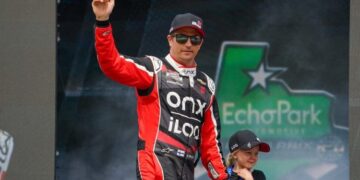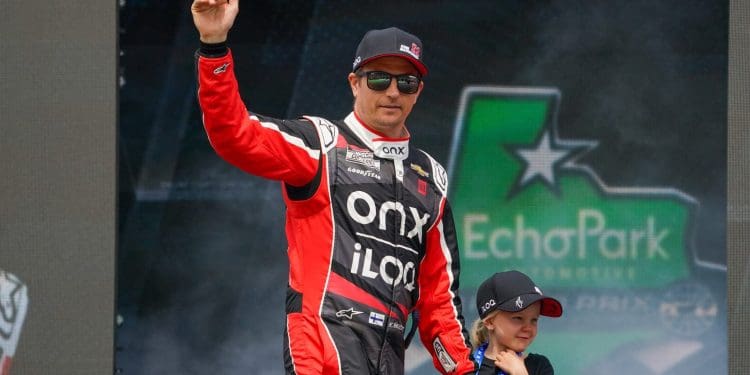In a recent discussion on The Red Flags podcast, former Formula 1 driver David Coulthard offered a candid analysis of Kimi Raikkonen’s career, suggesting that the Finnish driver’s solitary World Championship in 2007 could have been the foundation for a more decorated legacy, akin to that of Michael Schumacher, had he exhibited a similar work ethic and team engagement.
Raikkonen’s Natural Talent and Early Promise
Kimi Raikkonen, affectionately known as the “Iceman,” made an indelible mark on Formula 1 with his exceptional driving skills and unflappable demeanor. His ascent in the sport was rapid; after a brief stint in Formula Renault, he debuted in F1 with Sauber in 2001. His performances quickly caught the attention of McLaren, where he replaced Mika Hakkinen in 2002. Raikkonen’s tenure at McLaren showcased his raw speed and potential, notably finishing as runner-up in the 2003 championship.

The pinnacle of Raikkonen’s career came in 2007 when he joined Ferrari and clinched the World Championship in a dramatic finale at the Brazilian Grand Prix. Overcoming a points deficit, he edged out both McLaren drivers, Lewis Hamilton and Fernando Alonso, to secure the title. This achievement solidified his status among the elite drivers of his era.
Coulthard’s Perspective: The Role of Work Ethic
David Coulthard, who shared the McLaren garage with Raikkonen from 2002 to 2004, lauded his former teammate’s innate driving talent but highlighted a critical factor that distinguished Raikkonen from multiple world champions like Michael Schumacher: work ethic. Coulthard observed that while Raikkonen possessed immense natural ability, his approach to the sport lacked the relentless dedication that characterized Schumacher’s career.
“He had a lot of talent, and he won a World Championship. But if he had the work ethic of Michael Schumacher, he would have won more,” Coulthard remarked.
Schumacher’s Comprehensive Approach to Team Leadership
Michael Schumacher’s success extended beyond his driving prowess; he was renowned for his exhaustive involvement with his teams. Schumacher’s commitment encompassed continuous collaboration with engineers and mechanics, both at the track and the factory. He was instrumental in fostering a culture of accountability and excellence within the team.
“Michael controlled the engineers and mechanics at the circuit and in the factory. He held them accountable, and they understood it,” Coulthard noted.
This hands-on approach not only optimized the car’s performance but also galvanized the entire team, creating a unified force striving toward common goals.
Contrasting Styles: Raikkonen’s Reserved Engagement
In contrast, Raikkonen’s demeanor was notably more reserved. His interactions with team members were limited, and he often preferred to focus solely on driving. While this approach endeared him to fans who appreciated his straightforwardness and aversion to the spotlight, it may have curtailed his influence within the team.
Coulthard emphasized the impact of a driver’s presence on team morale and performance:
“If you’re there standing over engineers and mechanics, they feel it, it empowers them. You are the fuel that helps drive them forward.”
Reflections on Potential and Legacy
Raikkonen’s career, while illustrious, is often viewed through the lens of unfulfilled potential. His natural talent yielded memorable victories and a world championship, yet the consistency and sustained dominance that define multiple-title careers remained elusive.
Schumacher’s legacy, in contrast, is a testament to the synergy of talent and tireless dedication. His ability to integrate himself into the fabric of the team and drive collective success set a benchmark in the sport.

Coulthard’s reflections serve as a poignant reminder that in Formula 1, as in many high-performance arenas, raw talent must be complemented by an unwavering work ethic and proactive leadership to achieve enduring success.
As the sport evolves, these insights underscore the multifaceted role of a driver—not just as a competitor but as a central figure in inspiring and orchestrating team excellence.
























